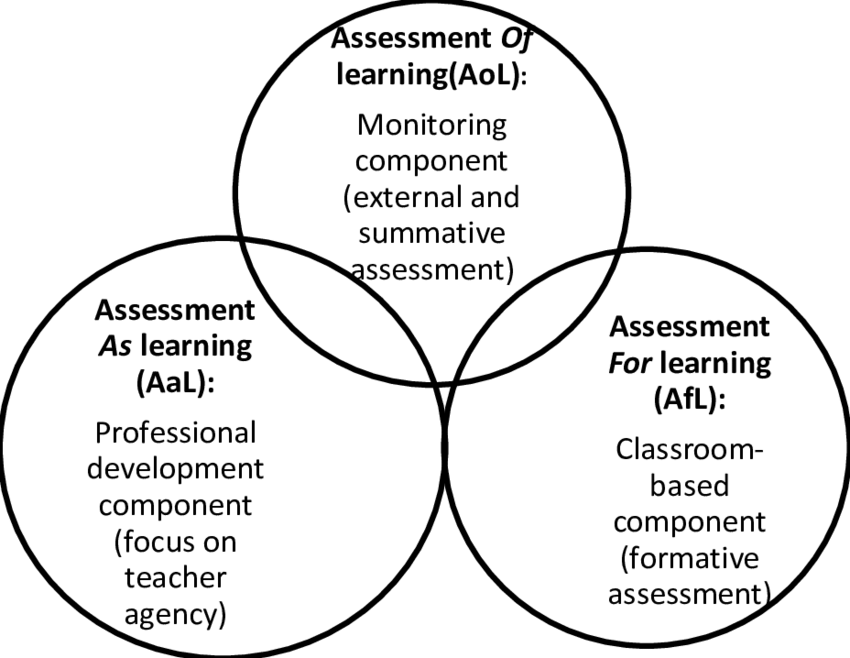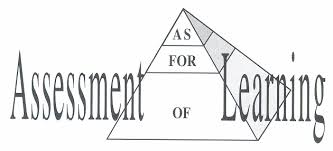Understanding the different purposes of assessment types gave me a clearer direction on what kind of assessment is needed and where to use a specific assessment. What peaked my interests in the purposes of assessment is the difference of summative assessment, formative assessment, and the AS, OF, FOR learning assessments.
It is very fascinating that the summative assessment is the assessment OF learning. It means that all the things that the learner has previously learned for a period of time or near the end of the assessment will be assessed to be able to know and evaluate the student learning and learning objectives are met. Thus, helping the educators for decision-making purposes to be able to effectively transition to the next assessment cycle.
Moreover, I am also astound to how the formative assessment is the assessment FOR learning. It means that the assessment is a concurrent happening wherein the assessment process is continuously done with and a decision for an instruction will be applied and another assessment will be done. This allows the students and teachers to learn from each other proactively and help the students and teachers cognitive abilities to be in a higher order.
Last but not the least is the self-assessment which is the assessment AS learning. It means that the students are responsible for the assessment themselves to monitor their own learning and reflect upon them, so that they can make necessary adjustments to achieve deeper understanding.

Teacher initiated assessments are OF learning. This kind of assessments rely heavily on the decisions of the teachers whether what kind of evidences the teachers wants to obtain and will use it for the purposes the teacher deems necessary. The teacher is responsible to monitor and reflect upon the results from the assessment and will make adjustments to be applied onto the next assessment cycle.
Student initiated assessments are AS learning. This means that the students are given their independence in learning. They are the one who will justify if their learning is making progress to meet the learning objectives of the assessment. The students then need to reflect upon what they did and be able to create an evaluation of their learning curve so that they can make the necessary adjustment for the improvement of their learning process and in turn the teachers will be responsible to collect such evidences and see how the students will make a decision for their continuous learning process.
Student and teachers initiated assessments FOR learning. In this kind of assessment, this is a continued relationship or actions between the students and teachers. As the students are responsible to check their performance in terms of learning, the teachers on the other hand is responsible to give the students a descriptive feedback so that both ways the students and teachers and follow through the progress of learning and be able to critique on both ways to be able to make empirical evidences for sound decision-making for continuous learning.

Earl, L. (2003) Assessment as Learning:
Using Classroom Assessment to Maximise
Student Learning. Thousand Oaks, CA,
Corwin Press. Retrieved from http://web.uvic.ca/~thopper/iweb09/GillPaul/Site/Assessment_files/Assessment.pdf
As far as I’ve learned regarding these assessments and their purposes, I have come to realize that I have been able to distinguish the past experiences I have and I am able to segregate them according to these categories and what have my teachers done right and possibly wrong in my opinion.
The most effective way of assessment for me is the assessment FOR learning, because it provides the continuous communication between the teacher and students. I believe communication is always the key for improvement. I am going to use an uncomfortable topic with regards to my claim on how effective the learning in this assessment process is. Way back in college we normally see political parties campaigning for their platform and for their political figures. They have different ideas and beliefs with regards to the laws applied in school and probably issues concerning the student buddy. I came to understand that this is part of integral growth of student learning. The reason is because both political parties are able to throw ideas and be able to criticize each side and come up with a better solution to solve the current dilemma at hand. In this way, as the assessment process goes on, the students are able to improve their cognitive abilities into a higher order.
The faculty of the institution are the ones who are advisors for the specific organizations or political parties, thus, they are the ones who given the advices whether the course of action is to be approved by the certain political party or not. Before they push through with any campaigns and decisions, they are in continuous revisions everyday as the campaign period runs until such one side will win against the other, but in the end of the campaign period, I believe the institution and its students benefit the most from both political parties.
Again, I am not a fan of politics, but this is a good topic to tackle for my realizations in the purpose of assessment and how they are being use in our daily lives for educational purposes. Along the way there is the assessment AS learning when the political parties are on field doing their campaigns and projects without the direct supervision of their advisors and in turn along they way the certain political party will surely have assessments OF learning to check if the student leaders really fit into their campaigns and projects. Therefore, as you can see that the assessment AS, OF, FOR learning is constantly being used in our everyday learning process. It’s just that we have to identify each data and where to use them to effectively integrate into our learning process.